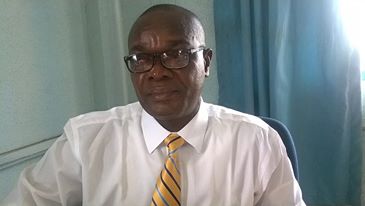The Chartered Institute of Logistics and Transport (CILT) Nigeria has said that the impact of the first term in office of President Muhammadu Buhari as it relates to the transport industry wasn’t too exciting as action was not taken in the major pressure point to energize the industry to expected direction.
The acting National Executive Director, CILT Nigeria, Mr. Paul Ndibe who stated this in an interview with Primetime Reporters in Lagos recently said that although there were steps taken towards enacting the National Transport Commission (NTC) Bill, despite all efforts made, that was stalled just as there was also effort in terms of the Ports and Harbours Bill and the new railway Act which according to him had also not seen the light of the day.
Ndibe also bemoaned the botched Nigeria Air project which the Federal Government had to discontinue at a point having wasted money and energy adding that it appeared as if once government has the slightest imagination of something, it start doing it without conducting due diligence on that idea.
“Look at the East-West line, I should say, the very first confrontation the former Minister of Transportation had with the National Assembly was on funding East-West line, the one from Lagos-Benin and all that, no mention has been made about that and then there were some other projects that they have undertaken, though they are still projects but they are not in the light of what other people might say would energize the economy. If you are developing a rail line from Katsina to Niger, what is the economy impact? If you are building a Transport University in Katsina, what impact will it have? So, it is like there is no policy direction as far as the transportation industry is concerned.
“But then, if you look at, like I listed; the National Transport Commission Bill, the Ports and Harbours Bill, the Road Bill, the Railway Bill, tell me which one they have actualized, none. And in the case of all this, if you look at the expenditure in the last four years, railway may have the highest in terms of infrastructure or development but how has that impacted on the economy? Of course, minimally. You cannot tell us that you are running Abuja-Kaduna line solely on passenger traffic and it was just on one train set until about early last year that they introduced the second train set. Even if it is only for passenger traffic, why not have three train set that you can now make six runs and increase the frequency of the service and then have higher line occupancy rate.
“You see, the efficiency of the railway is based on the efficiency of the tracks. So, with two train sets, you can run may be four trains, the line occupancy which the index is at a very low level. At that low level, you are not going to cover your cost more so when it is passenger service. If it is a freight service and it has a longer haul, then you can think of breaking even but not on the passenger service. So, we have not fared well on that”, he said.
He however pointed out that one could give credit to the government for the launching of Warri-Ajaokuta rail line which he said was on trial basis even though it was still on passenger service and was being offered for free in order to develop the patronage on that line.
He continued, “So, if you are thinking of providing a service, the economic basis for investing on that line will justify that it will pay itself. Now, it has been done and you are running it for free, maybe six months in order to build interest on that line, it means ab initio there was no justification for that line or there is no justification for passenger service on that line. There may be justification for freight but may be they don’t have the wagons to carry the freight, you are now deploying passengers traffic and you are now running it for free and for this long period, at what cost? So, these are the challenges before us. If the Warri-Ajaokuta rail line is intended to be freight and passenger, you cannot be running passenger service for this long. Why don’t you at the same time, taken in wagons and then build interest on the track at both the passenger and freight level so that you will be able to incrementally shore up for the operational cost of running it?
“My question is why looking at injection of new funds in these areas, maybe railway? What has happened to maybe five billion that the federal government injected in the rehabilitation of the former line; Port-Harcourt – Maiduguri line and the Lagos-Kano line? It is Lagos-Kano line that is functioning and that is being encumbered by the new Lagos-Ibadan, what has happened to that huge sums of money deployed to rehabilitate that track because the essence was to inject this fund, rehabilitate this track and then concession it before Jonathan left office.
“What has happened to the concession we were told that has been given to GE? If you had injected so much amount of money in the railway in order to concession it and we were told that GE was the preferred bidder, so, what has happened to that particular project? Nobody is asking any question, has that money gone to where? So, if you have injected that huge sums of money and Julius Berger is no longer taking that line, what are you doing in order to make the best use of that investment on that line. So, on the basis of that, I don’t think the federal government has done pretty well in terms of the railway sector”.
Send your news, press releases/articles to augustinenwadinamuo@yahoo.com. Also, follow us on Twitter @ptreporters and on Facebook on facebook.com/primetimereporters or call the editor on 07030661526, 08053908817.

